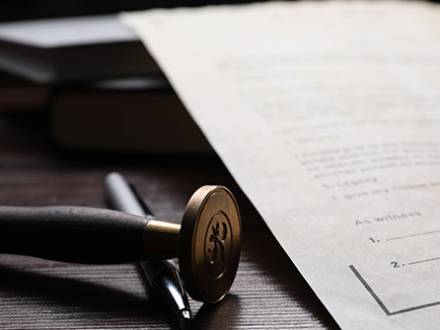The Probate Process in Illinois
 When a person dies intestate (without a will) in Illinois, their estate must go through a legal process called probate in order to be distributed to their beneficiaries. This process can be complex, and often requires the help of an attorney. In Illinois, there are several steps that must be taken in order to probate an estate.
When a person dies intestate (without a will) in Illinois, their estate must go through a legal process called probate in order to be distributed to their beneficiaries. This process can be complex, and often requires the help of an attorney. In Illinois, there are several steps that must be taken in order to probate an estate.
If you have questions about the probate process or need assistance with your loved one’s estate, please connect with the Glenview probate administration attorney at The Livingston Law Office today.
What Are the Steps in the Probate Process in Illinois?
In Illinois, the probate process can be divided into three stages: administration, litigation, and distribution.
1. Probate Administration
Administration involves taking care of all the legal formalities involved in the Illinois probate process, such as filing death certificates and appointing administrators. The court appoints an Illinois probate administrator to settle the estate of a person who has died. The administrator will oversee the payments of the deceased's debts and taxes.
The probate court oversees the process, making sure that everything is done properly.
2. Probate Litigation
Probate litigation is a legal process that takes place in Illinois when an individual dies without leaving a will. This process is used to determine who should inherit the deceased person's property. The litigation can be quite complex, and often involves several parties, including the deceased person's estate, potential heirs, and creditors.
Litigation often resolves disputes between the heirs over who should get what property in the estate.
3. Property Distribution
Property distribution after probate in Illinois is the process of dividing the deceased person's property among their heirs. This is usually done according to the will, but if there is no will, the state will dictate how the property is distributed. The process can be lengthy and complicated, so it is best to speak with an attorney if you are unsure about how to proceed.
Personal Representatives, Who Are They and What Do They Do?
A personal representative is a legal term for an executor, administrator, or guardian. A personal representative is a person appointed by the court to administer the estate of an intestate deceased person. They are also assigned when the deceased has left an invalid will.
The personal representative is responsible for collecting the assets of the estate, paying the debts of the estate, and distributing the assets of the estate to the beneficiaries of the estate.
Personal representatives have a fiduciary duty to their clients, which means they must act in the best interests of the person they are representing.
How a Lawyer Can Help You With the Probate Process?
The probate process in Illinois can be complex and overwhelming. However, with the help of an experienced Illinois probate lawyer at The Livingston Law Office, you can make the process as smooth as possible.
Our lawyer can help you with the probate process by helping to identify and value the deceased's assets, filing the necessary paperwork with the court, and representing you in any hearings that may be necessary. We can also help to ensure that the probate process is completed as quickly and efficiently as possible.
If you or someone you know is facing the probate process and is unsure of where to begin, please contact our office for a free consultation. We would be happy to help you navigate through this difficult time.





